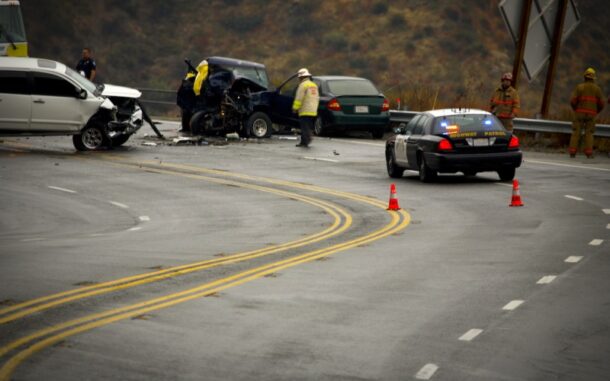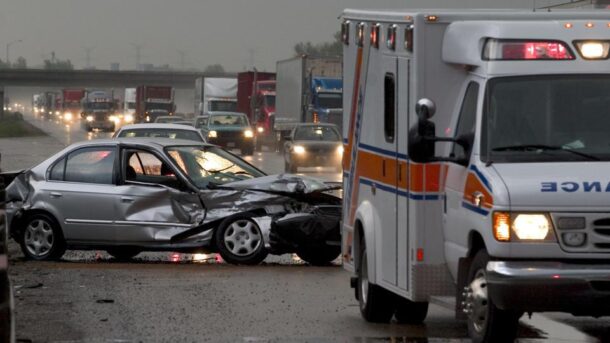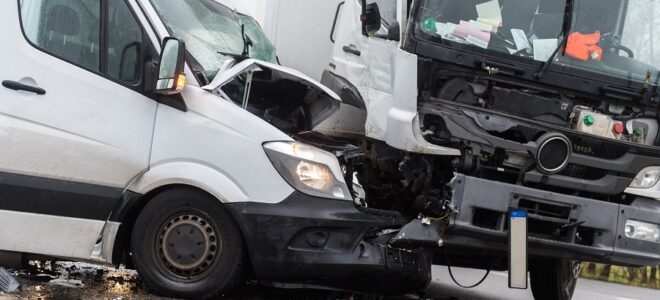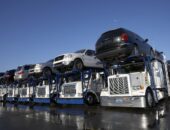It can be a challenging experience dealing with a vehicle accident, especially when trucks are involved. These vehicles are built big for a reason so when they are involved in an accident, there’s lots of damage. This can be stressful for the victims when they are trying to figure out what the next steps are. It’s important to understand the differences, what to look out for, and to gather enough evidence to file an appropriate claim. These claims can be trickier because other entities need to be involved for you to receive the compensation and justice you deserve.
The Legal Framework:

Unlike car accidents, truck accidents are subject to a set of federal regulations established by the Federal Motor Carrier Safety Administration (FMCSA). These are put in place to help keep the trucking industry regulated. They are meant to check drivers to see if they are qualified and if the trucks are running like they should. Important details that need to be checked before anyone gets on the road. When pursuing a truck accident claim, it’s essential to consider these federal regulations and how they may impact liability.
Multiple Parties Involved:
Truck accidents often involve multiple parties beyond just the drivers. This is because trucks are typically seen on highways where other cars are around them. Their size also plays a huge role in causing multiple cars to be involved. In addition to the truck driver, potentially liable parties may include the trucking company, the truck manufacturer, maintenance contractors, and cargo loaders. Since other people might be filing a claim, an investigation is called to figure out who is truly responsible.
Insurance Coverage:

Commercial trucks are required to carry higher insurance limits compared to personal vehicles. This is due to the potential for more severe injuries and damages in truck accidents. These higher insurance limits can benefit you because that means you’ll get a bigger payout. Due to the multiple parties involved in truck accidents, insurance disputes tend to be more complex. Coordinating coverage from different insurance providers requires a deep understanding of the nuances of each policy. Additionally, insurance companies for trucking companies often have legal teams dedicated to minimizing payouts, making it essential for victims to have skilled legal representation.
Investigation Challenges:
Commercial trucks are equipped with electronic control modules or “black boxes” that record crucial data, including speed, braking patterns, and other operational details. Retrieving this data can help you figure out what the main issue could have been and if the driver is liable. Proving negligence in a truck accident may involve examining the maintenance records of the truck involved. Trucks need to be regularly maintained before they can be considered safe enough to drive on the road. If the maintenance records show that the driver was lazy in getting something checked, then he could be liable. These are details to look out for when dealing with a truck accident.
Severity of Injuries:

Due to the sheer size and weight of commercial trucks, injuries resulting from truck accidents are often more severe than those in car accidents. Catastrophic injuries, such as spinal cord injuries, traumatic brain injuries, and severe fractures, are unfortunately more common in truck accidents. The long-term consequences of these injuries can significantly impact the compensation sought in a claim. Tragically, truck accidents can lead to fatalities. When a loved one is lost in a truck accident, the legal proceedings transition into a wrongful death claim. Navigating the complexities of a wrongful death claim requires a compassionate yet assertive legal approach to ensure that surviving family members receive the compensation they deserve.
Statute of Limitations:
While both car and truck accident claims are subject to statutes of limitations, the filing periods for truck accidents may differ. Due to the complexities involved in investigating truck accidents, some states extend the statute of limitations for filing claims against commercial entities. It’s best to research these limitations so you don’t miss out on anything. You don’t want to assume you have plenty of time when it comes to these accident cases. The sooner you file your claim, the higher the chance you have of receiving some compensation.
Negotiations and Settlements:

Given the severity of injuries and damages in truck accidents, settlements tend to be higher compared to car accidents. Insurance providers for commercial trucks are often motivated to settle claims quickly, but victims must be cautious not to accept inadequate settlements that fail to address long-term medical costs and other expenses. Engaging the services of an experienced attorney is particularly crucial in truck accident cases. Trucking companies and their insurers are well-equipped with legal resources to dispute and minimize claims. Your attorney will be able to review your case and see what the best steps are for getting a successful settlement.
Environmental Impact:
Beyond the legal and personal implications, truck accidents often have a more significant environmental impact compared to car accidents. The cargo carried by commercial trucks may include hazardous materials, and a collision can result in spills and contamination. Environmental cleanup adds another layer of complexity to the aftermath of a truck accident, involving regulatory agencies and specialized teams. This environmental consideration further emphasizes the need for a comprehensive and nuanced approach when handling truck accident claims. Be sure to be careful of your surroundings when inspecting the scene of the accident.
Public Safety Concerns:
Truck accidents raise unique public safety concerns due to their potential for mass casualties and significant property damage. The aftermath of a truck accident may necessitate road closures, detours, and extensive cleanup efforts, disrupting the normal flow of traffic for extended periods. Truck accidents can cause loads of issues for everyone involved and cost a lot of money. The damage can take loads of time fixing and people will have to plan their schedules around that. This safety concern is important to note when filing your claim.
When it comes to filing a truck accident claim, it’s important to keep all these details in mind. Truck accidents don’t just involve the driver, they involve so many other entities. You must acquire specific details to find out if the driver was the main reason the accident happened. Once you can prove that then you have to work with the driver’s employer and manufacturers to figure out what really went wrong. The best way to get these goals accomplished is by reaching out to a trusted legal team around the area to help you. They will review your case and know what to do next. They will do everything in their power to get you the compensation you need to cover the damages.




